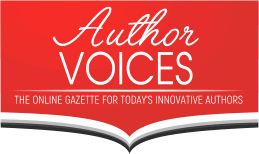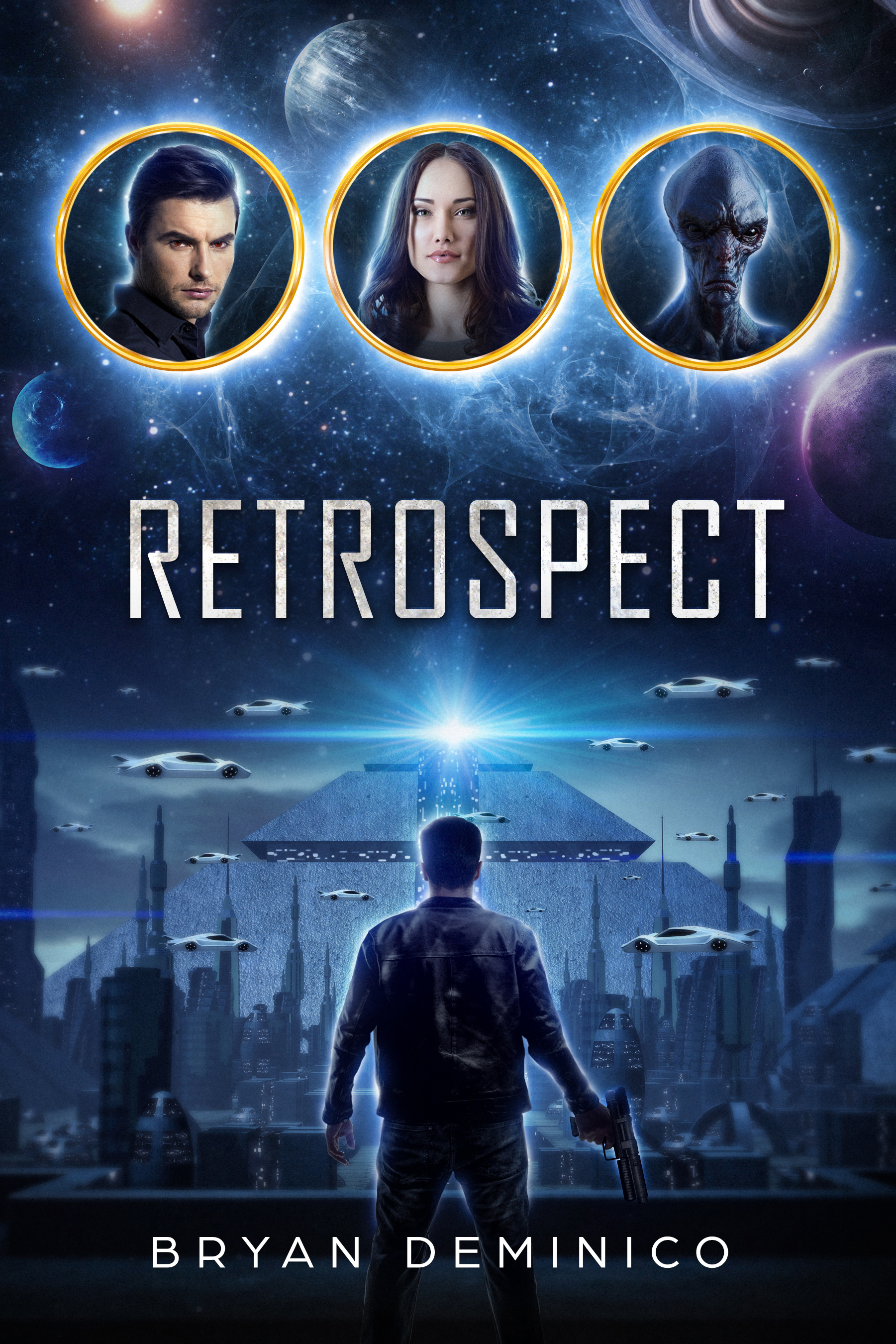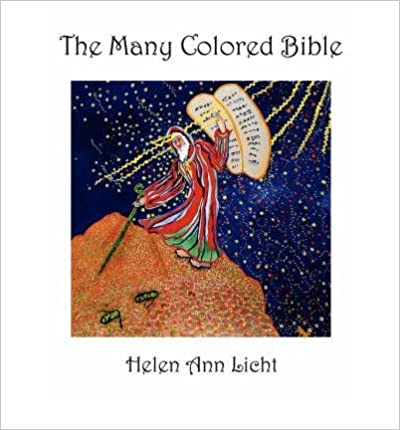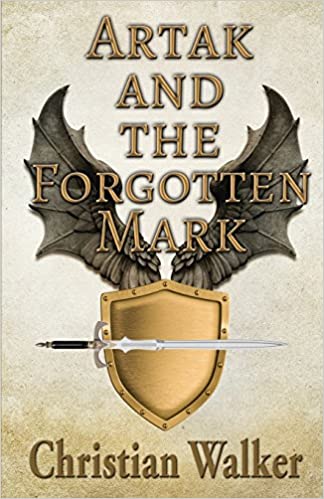Interview with Bryan DeMinico
Author of Retrospect
Where are you from originally and where do you reside now?
I claim Florida, my original state. Born and raised in the South Florida area, and yes I miss it. I am currently in Marietta, GA, a city close to Atlanta. One day, I shall be close to the beach again.
If you currently reside somewhere besides where you were born, what’s the story that lead from there to here?
How does one go from South Florida to the greater Atlanta area? For me, this was not a simple drive from Point A to Point B. I left Florida after joining the United States Army through ROTC. I received my commission as a 2LT into the Armor branch. From there, after deployments, random bases, my last base before going into Corporate America was Fort Benning, GA.
What made you decide to write and publish your first book?
I had written the first draft of Retrospect while in high school, around 1997. The draft was then revised in my early college years a few times. I had also written some other drafts, short stories, poetry along the way. Most of my creative writing was put on the proverbial back burner during my active duty Army years from 2006 to 2015. Once I was out, I decided to finish it, polish it up, get it out there. You have to start somewhere, right? Even the great writers wrote a “first” book. So I buckled down when I had spare time, really buckled down during the weekends, and finished my first actual novel.
How would you describe your books to first time readers?
For my first novel, I would say the science fiction/action/adventure/thriller world is one where I slap the reader around a little like running out of the gate during a race real fast when Chapter 1 gets absorbed. But then I give the reader a hug for making it past Chapter 1, allow them to catch their breath, tell them we are going to jog and power-walk now as we go deeper and deeper into the year 3421 and Retrospect’s core storyline. Between the lines, this is not just a simple future-tech action/thriller, with a spy sub-genre poking out, but socio-political elements run throughout. The reader dives into a world where three races, in a futuristic political setting, coexist. There are two earth planets – the original Earth, and also a new artificial planet called Atlas. Space has been colonized for the most part. The creation of Atlas was designed to offset the strained resourcing and population issues of Old Earth, creating and maintaining a new-found balance. Here the story revolves around a political takeover plan for Atlas. Our Hero, Agent Jonah, a top-priority agent for the Galactic Interpol Society, is dispatched to investigate stolen codes capable of crippling Atlas. Scenes are descriptive, drawing the reader into the action. The world shows and explains technological advancements to readers as they follow Agent Jonah and the story of Retrospect, his debut mission.
Who do you feel is most likely to connect with the topics you write about?
Those who want something more than basic will find my writings unique, more than palatable, and descriptive. In my first novel, those who are fascinated by future-tech worlds, space battles, and fight scenes with a “spy” twist, will all connect well with Retrospect. I’ll use the base-line of a story to dive deeper into sociological subject matters, human interactions while wrapped in technology overdrive, and use today’s themes to inject the storyline with something to elevate above just “basic.” But, I’ll keep the story flowing and moving along as well. My current work in progress is a fantasy-fiction where the character exists in both reality and dreamscape and must question true existence and the conflicts that arise from such questioning. Again, I refuse to write an “easy thing,” and there must be some deeper meaning and connection within the worlds and stories I create for the reader to discover such cleverness and uniqueness.
What unexpected or surprising thing did you learn during the process of writing and publishing?
I have learned a lot from this first time rodeo, as they say. The most important person in the entire process is the reader. I rolled the dice a few times in Chapter 1 and some other instances throughout Retrospect, where I chose a “high strung – artistic style,” as if my writing existed in the year 3421. Some liked it, some did not. After taking the criticism, I feel my current WIP is so much stronger in syntax and balanced descriptions and phrasing. I also learned, you cannot please everyone, and don’t fret over bad reviews. Take criticism, yes, but do not hide under your bed after a One-Star Amazon review. Once you write your first book, you throw it into the ring and then discover you’re part of the club where it will get read, liked, disliked, used as tinder for a fireplace, or set on someone’s bookshelf.
If you could, what advice would you give to your past self before embarking on this journey?
I would tell me to loosen up. My first book was tight, like a pitcher not properly warmed up before the World Series. You don’t have to use style as a garnish – just be natural. I am a descriptive writer who says things differently at times, but harness that energy and be more direct to allow the reader to stay comfortable and focused on the story, wanting to get to the next page.
How many people would you ideally like to reach with your books?
I know that more than one person read my first novel, Retrospect. Just the idea that a person took the time from their busy day to read what I wrote is a humbling experience. As I grow and publish more, I would like to attract an audience who will appreciate what I am doing with the craft. I do not know the magical number, but I would like to be a name that is mentioned in a book club, or blog, or maybe in the section of a bookstore when someone pulls my books off a shelf to read the synopsis. This does not happen overnight.
What has been the biggest challenge and frustration during the process to date?
The biggest challenge is time and focus. Working all day for a company, you need to mentally set aside the brain-energy needed to write. I have already come to terms that I will not lose my “center” when I see a bad review. The person leaving a bad review has never written a book, and they more than likely feel their review has saved the galaxy from an imminent alien invasion. I have to remind myself of the goal – become a name, a successful writer. I must make time for my ultimate goals, or time will write me off.
What’s your biggest strengths when it comes to book a) writing, b) publishing and c) marketing?
I will say my biggest strength when it comes to writing is where the ideas are. I have them all in my head – stories that have been cooking for many years. I don’t suffer from writer’s block, I spew the words on the page and then edit during the next drafts and revision stages. I see my books and stories as movies, where I watch them in my mind and type at the same time. My military experience has also added some “flare” to action sequences for sure. Self-Publishing is tough, as one must sort of figure it out for themselves. My biggest strength is a lesson learned – don’t get or feel rushed. When the publishing proofs are ready, re-read the entire book as if you are a reader picking it off a bookshelf. I think I have a good handle on the power of social media. Recently, I created a well-targeted Facebook ad campaign that got me a few sales, so I am getting better in that regard. But the self-published author is all alone in marketing, so I have learned research, networking, and having to spend a little money to push your name out there are all techniques.
What’s your biggest weakness when it comes to book a) writing, b) publishing and c) marketing?
I need to understand that a reader may not want to know too much about a situation, scene, for example. There is a time and place for high-strung description. I need to relax sometimes in my syntax and realize my natural voice needs to come out more instead of being internally stubborn. As far as publishing, I do not know the ins and outs of the industry. At the end of the day, just my opinion, mainstream publishing is designed to make a net profit. I am clueless to the ins and outs of that strategy. For now, I need to continue to develop my craft and push out more stories. Marketing for the Indie author is a strange universe. I am my own publicist, and I only have access to the basic level marketing strategies. Because of this reality, I remain restricted in “trying my best” to market. I need to explore Amazon publishing for my next book, as well as more book clubs and outlets.
When do you think you will write your next book?
As of the 2nd of October, 2019, I have hit 80K words on my WIP. I need to focus and keep driving forward. I have a new system where I write 300 words a night, Mon thru Thursday. And on Friday and the weekends, I have to hit at least 2K words. It’s a strategy that has allowed me to hit the 80K mark so fast. The working title is: Realm – The Great War – Book 1. It is not sci-fi, but fantasy-based and this is a story I have wanted to tell since I was a teenager when I first created it in my mind.
Are you self published or did you use a hybrid publisher, or a traditional publisher?
I am self-published through Balboa Press, for my first book.
FEATURED AUTHORS
Worrying if I was telling too many secrets Leaving out so much.
Keep Reading »Writing is an arduous task even when one has all ideas clear in the read more
Keep Reading »Write the book, start marketing (letting people know of it) before you finish.
Keep Reading »










